The 14,200 rooftop solar (RTS) systems of 360MWp installed capacity in total, scattered on top of buildings all over Ho Chi Minh City, can meet up to 8 - 10% of the city power demand (4,600MW) in high solar irradiation conditions. This helps reduce system load and increase the reliability and quality of power supplied by Ho Chi Minh City Power Corporation (EVNHCMC). However, the recent hot growth of RTS has resulted in greater demand for regulated management and control of installed capacity, panel quantity and location, which also benefits new customers who intend to have grid-tied RTS systems. To this end, EVNHCMC has developed and deployed a GIS-based RTS management application.

Figure 1: GIS-based map for RTS system management
The application was developed on the Web GIS mapping platform built and owned by VNPT Information Technology Company, incorporating data from internal management systems (GIS, CMIS, MDIS, PMIS) with connections complying with information security and safety regulation. Geographical data from the Web GIS platform provides spatial dimensions to RTS metering points which are displayed on the application along with their other attributes (metering point ID, customer’s name and address, meter ID, connection date, supplying substation, RTS system capacity). Other features include searching and map locating of metering points and applying multiple layers such as administrative, topological, traffic, LiDAR, and satellite imaging.
The application comprises two main modules: (1) Update customer information, and (2) Monitor management information.
1. Update customer information module:
Upon receiving a customer request for installation of RTS systems, the in-charge department processes inputs from the customer to identify the following:
- Customer location on the Corporation managed GIS-based map section;
- Name and installed capacity of the supplying substation, capacity allocated to existing customers, which are used to automatically calculate available capacity to accommodate the customer’s systems (total connected capacity cannot exceed that of the substation, as per regulations by the Ministry of Industry and Trade).
With produced information, the in-charge department will have the necessary data to determine whether the customer may connect the intended solar power capacity to their substation. The result will be promptly displayed on the map with color indicators for customers’ quick reference.
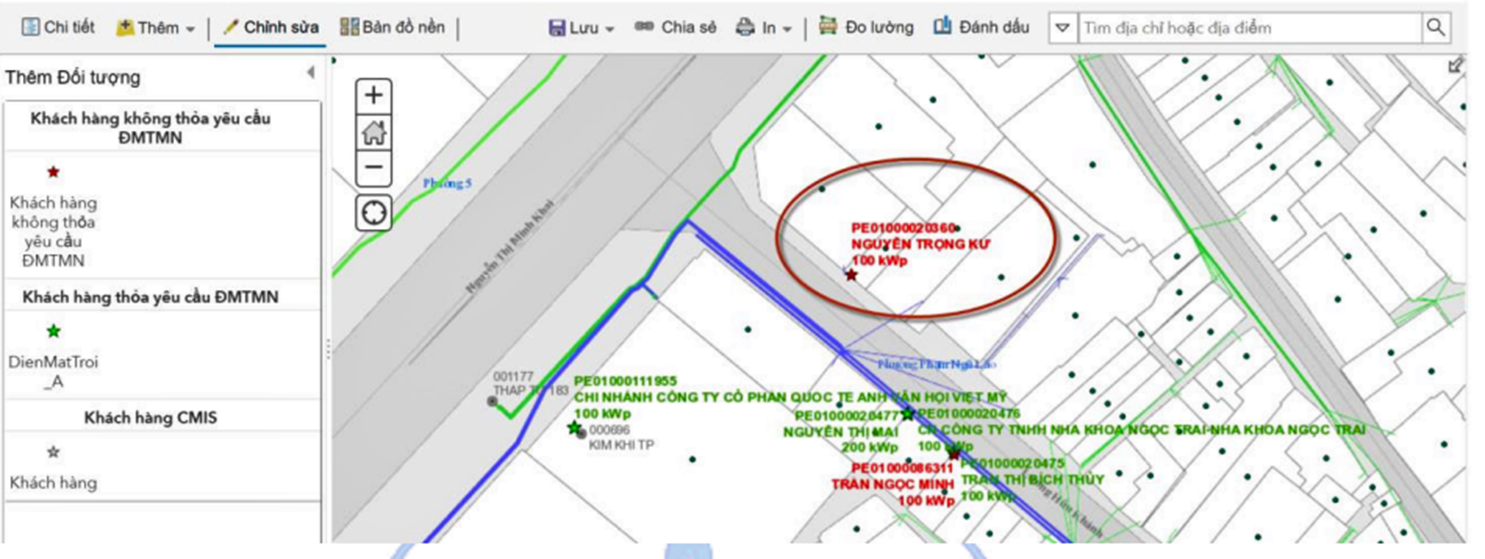
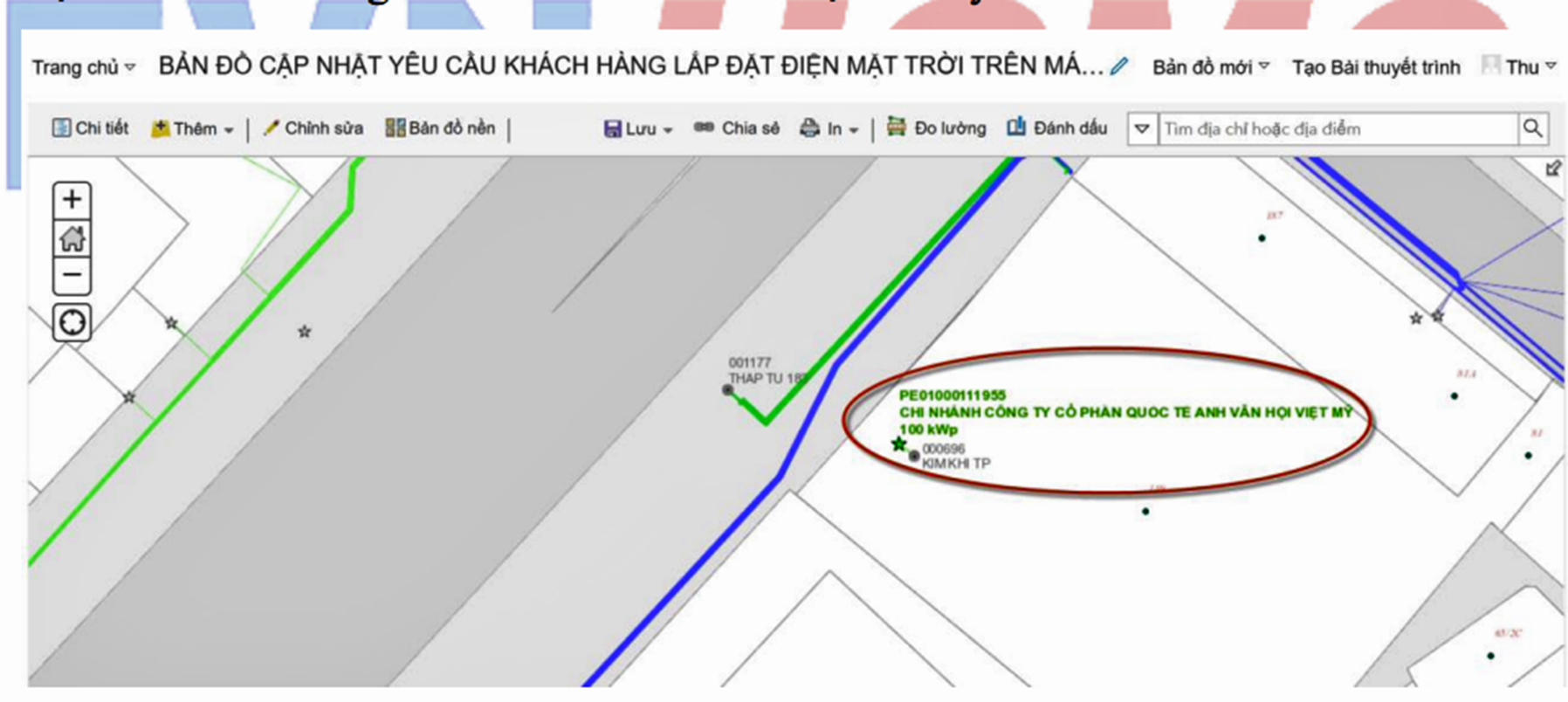
2. Monitor management information module:
This module is designed to enable local Power Companies (or the Corporation) to monitor and manage information regarding RTS installations within their service areas, including:
- Number of connected customers;
- Total connected capacity;
- Number of customers requested for connection and their total capacity;
- Online view of connected and pending customers’ locations on GIS layers.
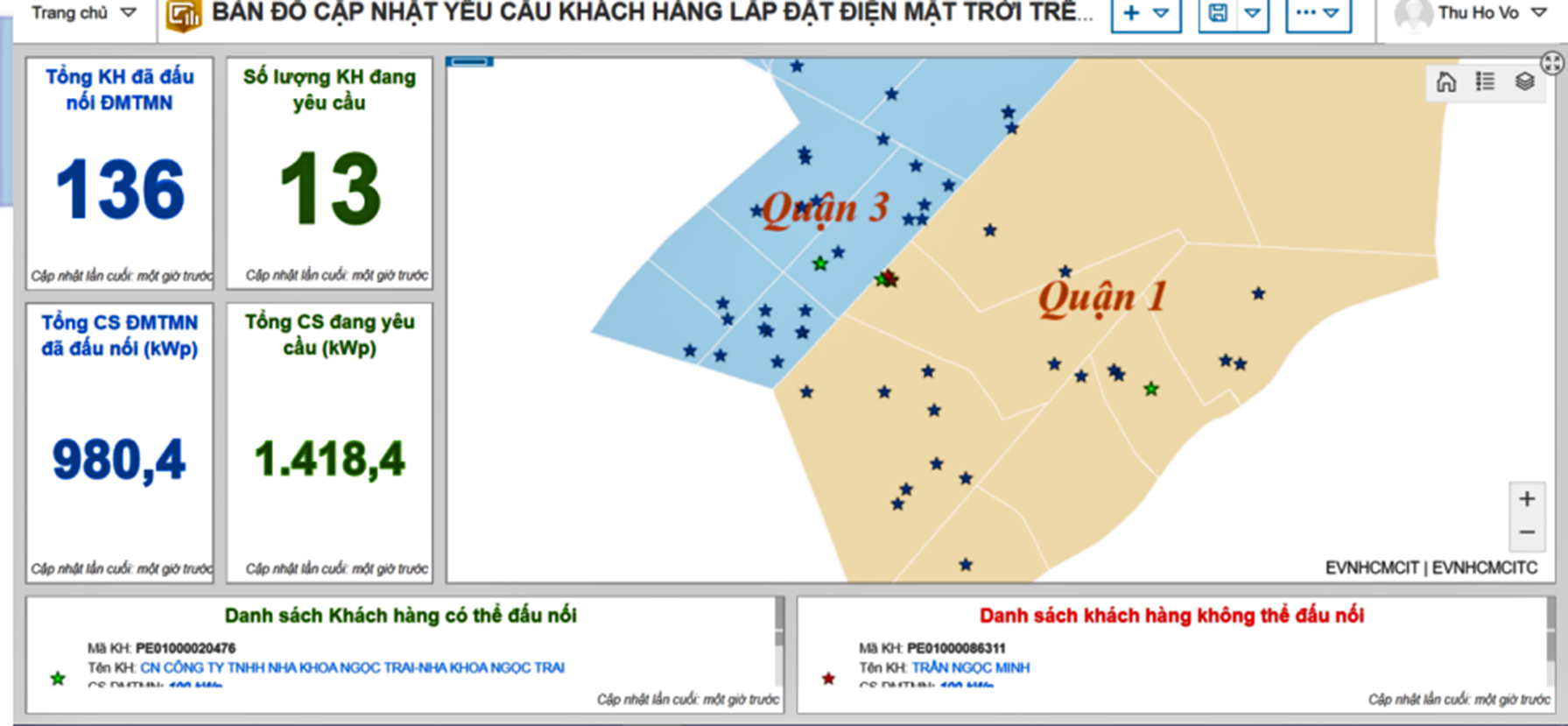
BENEFITS FROM THE APPLICATION:
With the power of ESRI and Google satellite imaging, differences can be shown for the RTS sites between the inspection date and the latest date of commercial operation/capacity change agreed upon by the customers and the Corporation.
The Web GIS platform allows the application to be accessed from simple web browsers and provides geographical locations of the metering points for employees to plan the best routes for inspection.
In addition, EVNHCMC is commissioning aerial photos of 162 large-sized RTS projects/systems to aid its contract management and monitoring, providing additional inputs for power purchase pricing, as well as commercial operation dates, and feed-in capacity.
Customers who wish to connect their RTS systems to the grid may contact EVNHCMC’s Customer Services or local Power Companies to access the application and assess their connections before investing.
EVNHCMC’s ADVANCED METERING INFRASTRUCTURE (AMI)
By 30 May 2022, Ho Chi Minh City Power Corporation (EVNHCMC) has installed 2,615,842 telemeters for 2,695,921, or 97.03% of existing customers in the Ho Chi Minh City (HCMC) grid, and expects to complete in June 2022.
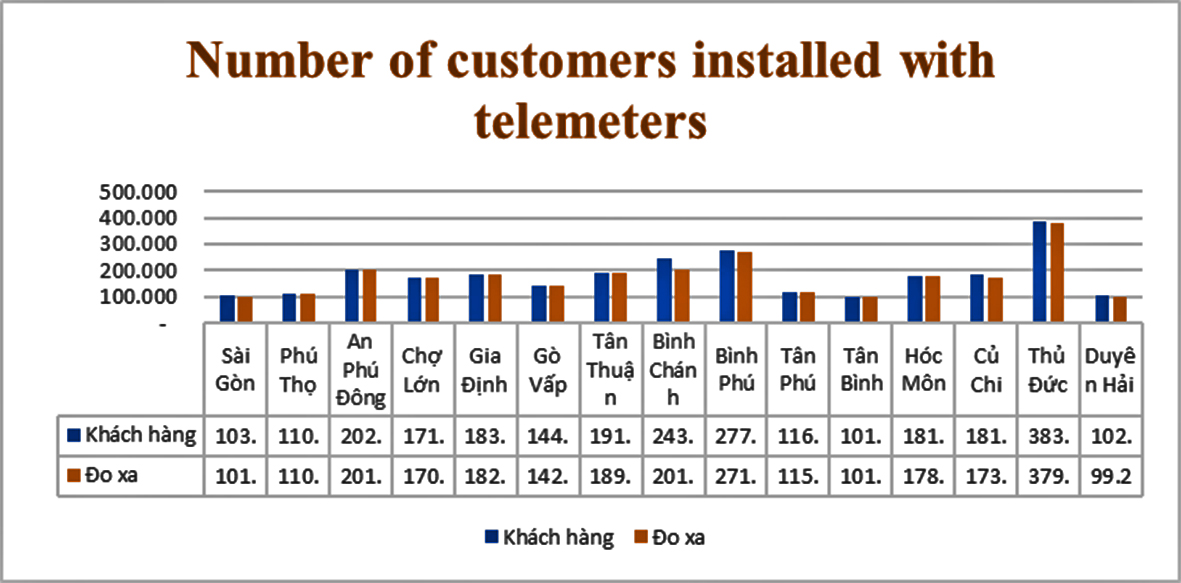
The current global energy crisis, especially the escalation of fuel prices has caused detrimental impacts on households and hindered the post-COVID recovery of the economy.
Realizing its essential role in the stabilization of social life in HCMC, EVNHCMC has taken various measures to spur the development of a smart grid, improve customer experience and enhance the overall energy utilization and management efficiency. Taking the central role in this forward movement is a dynamic environment for customer engagement, designed to provide the most convenient and quick interaction. Business operations are simplified to better user experience and satisfaction and improve the Corporation governance efficiency over time.
EVNHCMC has planned a pilot implementation of an advanced data collection system based on smart meters (the AMI system) in 2022 at Thu Duc Power Company. Along with the deployment of AMI various practical benefits will be realized for customers and the utility.
On the Customer’s side, they are now able to monitor power consumption at any time using EVNHCMC’s Customer Service website and “CSKH” app. They can also choose pre-paid or post-paid options for their electricity plans. Furthermore, the AMI system provides new services through which customers are informed of their power system status: abnormal consumption and operation issues warnings, automated notification through SMS, CSKH app, Zalo, and email.
With flexible means of monitoring, detailed usage information, and flexible payment options, customers now can actively design their power use plans to be more adaptive, more efficient and less wasteful, which ultimately benefits the economy at household and social levels, and contributes to environmental protection efforts.
On top of that, the AMI system also empowers customers to keep the utility’s quality of services under check by providing on the Customer Service app and website the full information of system operation status, including values of current, voltage, and power factor. This is an effort from EVNHCMC to promote business transparency and the monitoring power of customers.
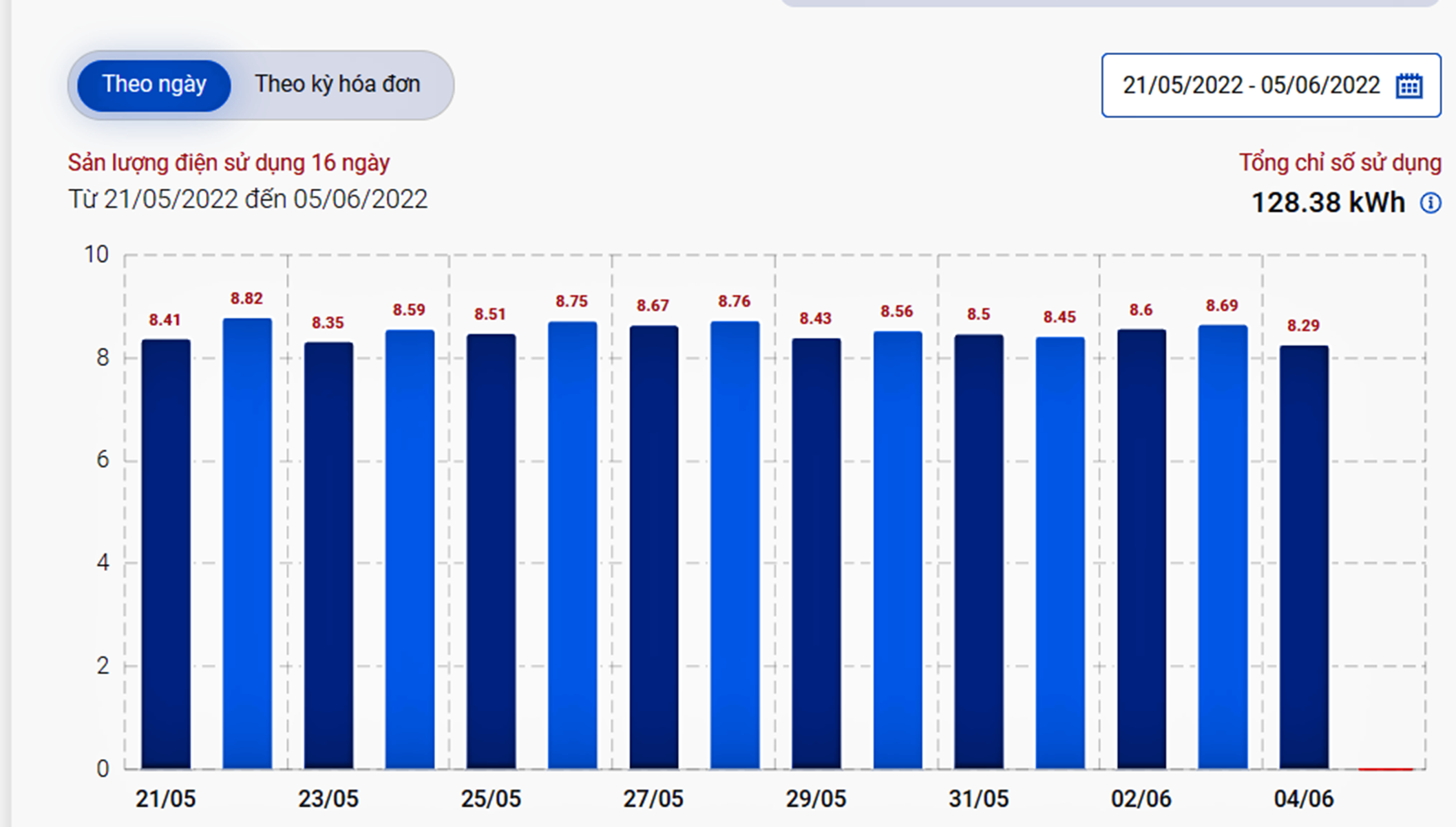
On the utility side, the AMI system provides helpful tools for operators in monitoring the performance of the system in every customer’s residence. Anomalies and potentially problematic areas will be actively detected and quickly dealt with. This enables shorter outage time, better power supply reliability, and improved customer service quality over time.
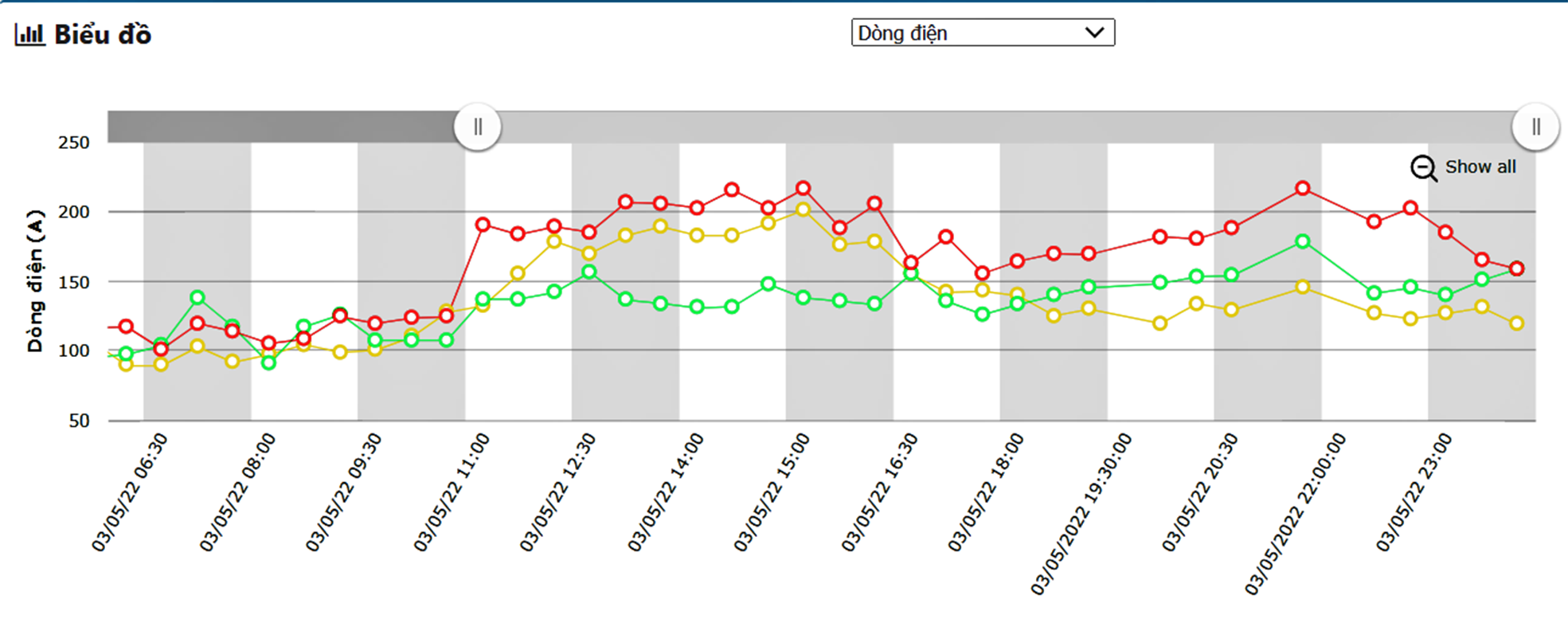
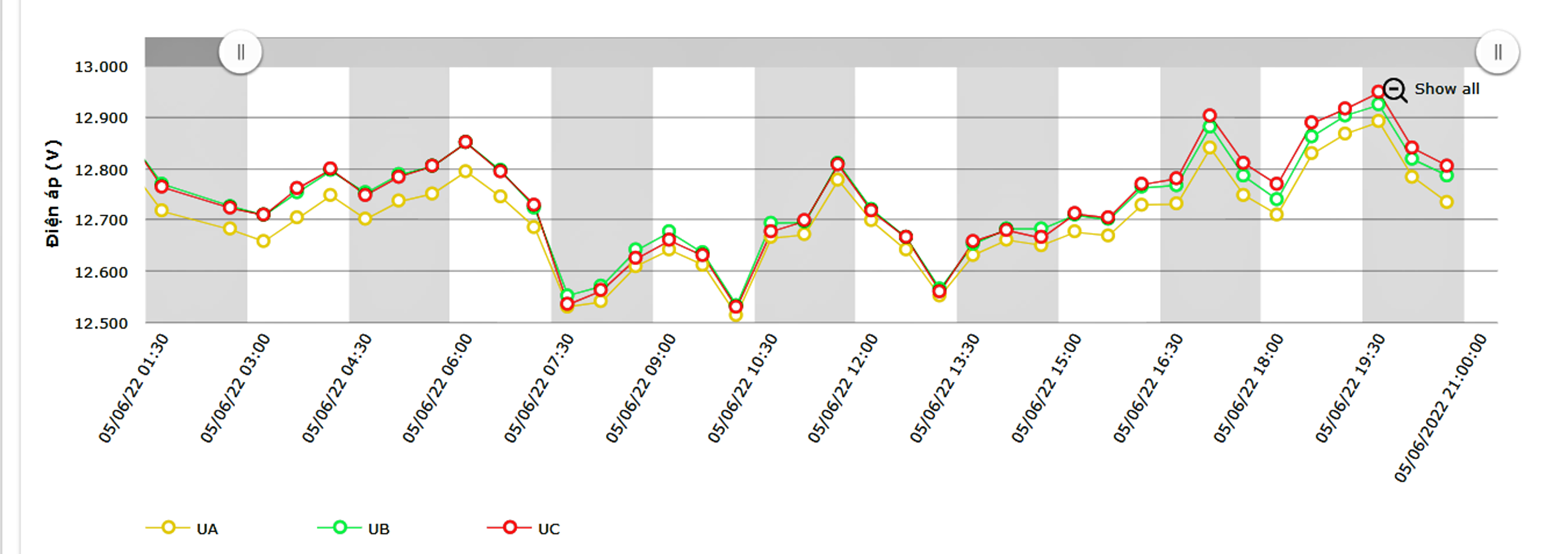
Additionally, the AMI system allows operators to remotely energize or de-energize loads, which cuts down operating costs and power incidents, ensuring a stable, uninterrupted and safe power supply.
One of the most important features of the AMI system is the ability to gather immediate and fully operational data from the power system for demand response programs, load analysis, integration of distributed energy resources, data analysis, customer load and consumption forecasting. From data obtained from the AMI system, EVNHCMC will be able to determine a firm direction of development, which in turn would inform its most timely and effective plans for system upgrade and maintenance.
PV
Share